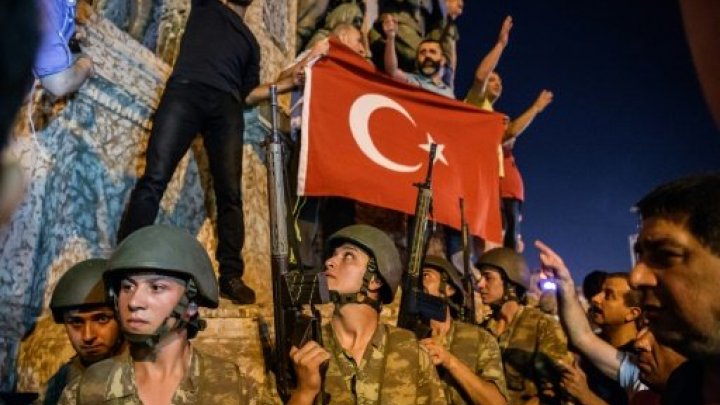WOLFANGO PICCOLI
The lack of political and, more importantly, popular support in Turkey for the coup plotters contributed to their fiasco. Displaying a blatant disconnection from social reality, the military faction behind the putsch underestimated President Tayyip Erdogan’s public appeal and society’s opposition to military rule. In this regard, the president’s ability to mobilize his AKP party’s supporters against armed military units is powerful testimony of his unmatched leadership.
While the plotters’ motivations remain unknown, an upcoming meeting of the supreme military council could see purges of those who could be behind the ill-planned coup. The event will only help to further weaken the credibility of the military in the eyes of Turkish society.
Emboldened by its victory over the coup plotters, the government has wasted no time in pursuing alleged opponents within the state institutions. Aside from arresting around 3,000 soldiers, the government has suspended 2,745 ordinary judges and issued arrest warrants for around 190 judges in high courts and for one member of the constitutional court. Moreover, five members of the body that governs the entire judiciary have been dismissed. The swiftness of these moves shows how the government was ready to exploit the situation to go after its alleged opponents.
As suggested by the government’s initial reaction, reconciliation is not on the agenda. As an example, Erdogan decided to up the stakes by calling on citizens to take to the streets in a show of support, rather than calling for restraint. This highlights that Erdogan is eager to exploit the event to expand his power and continue the witch hunt, further worsening the state of Turkey’s crumbling democracy.
Moreover, there is a growing risk of a snap election, as the AKP might seize the opportunity to enlarge its parliamentary majority with the aim of introducing an executive presidency via a constitutional revision. With two opposition parties (the MHP and the HDP) undergoing significant internal turmoil, an early election could deliver the necessary numbers for Erdogan’s dream to be fulfilled.
On the external front, the already strained relationship with the U.S. could worsen as a result of Ankara’s increased determination to request the extradition of Fethullah Gulen, who has been quickly accused by the Turkish government of being behind the failed putsch. In contrast, the relationship with the European Union is unlikely to change significantly despite Erdogan’s increased authoritarianism. EU capitals remain willing to maintain a constructive relationship with Ankara to continue the joint management of the refugee crisis.
Beyond domestic freedoms and Turkey’s foreign relations, the other likely casualty of the failed coup attempt is the country’s economy. While the tourism industry will be the most notable immediate victim, the already bleak outlook for structural reform will only get worse as the event will crucially provide the government with a unique window of opportunity to pursue its repressive agenda. An immediate risk attached to this poisonous mix is a potential downgrade by rating agencies, which could lead to the country losing investment grade status.







Comments